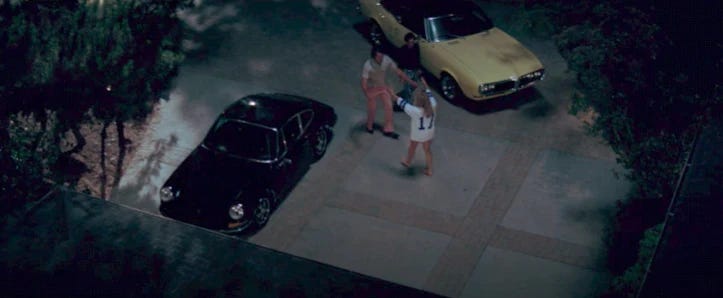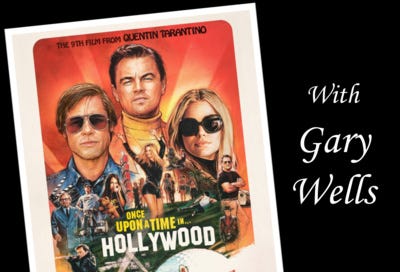DEC4 Podcast Companion: Gary Wells - Once Upon a Time in Hollywood (Spoiler) - American Actors Abroad
Making sense of the ending to Quentin Tarantino's Once Upon a Time in Hollywood
The very first time our leading contributor, Gary Wells (www.soulrideblog.com), joined us, we concluded our episode on Elvis That’s The Way It Is with a little bonus segment talking about the ending to Quentin Tarantino’s Once Upon a Time in Hollywood. The focus of our discussion was Tarantino’s rewriting of history, and how this surprising twist sat in the context of the movie as a whole. This segment was subsequently published as a standalone episode, but did not have a companion newsletter.
With all our past episodes and background articles now consolidated on our podcast website, it was about time to add some background to this segment, and link to some of the in-depth analysis Gary has put together on his own site relating to Once Upon a Time in Hollywood, and some of the real, and imagined, history behind it. (Spoiler warning reminder!)
Since this episode was first published, Gary has expanded the Once Upon a Time in Hollywood section on his own website. Articles include detailed commentary on the movie, the novelisation and the music. As with our podcast and this newsletter, his review does contain spoilers.
As Gary explains, one of the film's historically fascinating aspects is the portrayal, through the experience of Rick Dalton (Leonardo DiCaprio), of a generation of American actors who escaped the constraints of Hollywood and found starring roles in European cinema.
With Dalton's career in decline, his agent, Marvin Schwarz (Al Pacino), suggests a move to Europe to star in 'Spaghetti Westerns'.
Gary writes,
"...Tarantino is paying particular homage to these actors that left Hollywood and to the films they made abroad that few people in North America got to see. The prevailing thought has always been that these films are somehow substandard but Tarantino feels – and many of us agree – that several of these films have much to offer and many are – dare I say – fine cinema with distinct charms..."
"...Italian filmmakers were out to redefine the western film but, in order to attract audiences, they wanted recognizable American actors to star...L’uomo della valle maledetta (Man of the Cursed Valley, 1964) was Ty Hardin’s intro to European filmmaking and its release date places him right on the ground floor of Americans working in international films..."
It wasn't just the Western that was being reimagined; producers of Sword-and-Sandal epics and James Bond inspired Eurospy movies were crying out for American lead actors.
Read more about Ty Hardin and Dan Vadis, in the first two instalments in Gary's series on American Actors Abroad.

In our podcast, Gary talks us through Quentin Tarantino's reimagining of history, which also occurs in the director's Inglorious Basterds, with the successful assassination of Hitler. In Once Upon a Time in Hollywood, Charles Manson's murderers get more than they bargain for and innocent young lives are mercifully saved.
Gary writes;
"...But Quentin Tarantino does not minimize these historic murders – he erases them. With Once Upon a Time…in Hollywood, Quentin Tarantino cleanses history. One of the major villains of modern times has had his crimes against humanity, Los Angeles and Hollywood expunged from the record..."

Once Upon a Time in Hollywood is a multi-layered experience. Learning more about it, and the history behind it, raises the intensity, enjoyment and lasting emotional impact of the movie to a whole new level. Very special thanks to Gary for sharing his insights
A critic in The New Yorker was not quite as big a fan as us, describing Tarantino’s vision of the 1960s as ‘obscenely regressive’. Oh well.
Thanks also to Steve Collins for technical support and to Gainesville for our podcast theme.
And very special thanks to our subscribers, readers and listeners for such great support.









